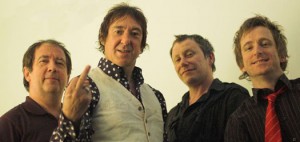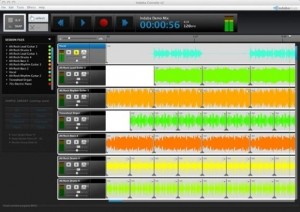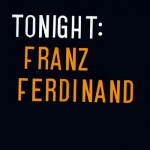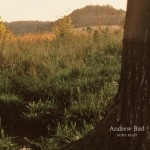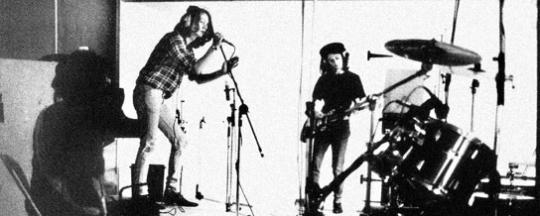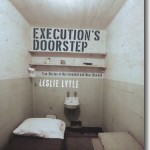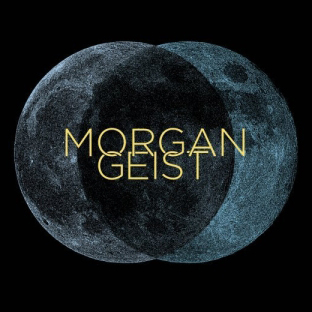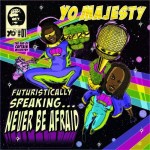Article
A.V. Club Chicago
January 2009
Link
The Eternals perform “Billions Of People” at the Empty Bottle in 2007.
While Chicago attracts its fair share of touring acts, it’s not exactly a reggae hotbed. Our cold Midwestern metropolis with frozen streets are better suited for caribou than Caribbean music. But if you look in the right places, plenty of venues, performers, and club nights exude positive vibrations. For instance, Bob Marley’s backing band The Wailers performs its classic 1977 Exodus album in its entirety at the House Of Blues on Jan. 23. In preparation, Decider shines a light on where reggae shines in Chicago.
WHERE TO SEE IT
The Wild Hare
With its reverent shine of Marley posters, thatched roof bars, and DJ Booth, Wrigleyville’s The Wild Hare might seem a bit cheesy, but its recent renovations have modeled the venue after a speaker-filled truck from an original Jamaican soundsystem. The roots of this club, which boasts a slick stage set-up, run deep. Zeleke Gessesse, an Ethiopian refugee who played in the band Dallol and toured with Ziggy Marley & The Melody Makers, founded this pillar of the city’s reggae scene in 1986, originally calling it the Wild Hare & Singing Armadillo Frog Sanctuary. It currently plays host to solid local groups like Indika, Gizzae, and Dub Dis and touring acts like Capleton, Toots And The Maytals, and Burning Spear.
WHO TO WATCH
Papa G
A hardworking DJ with residencies around the city, George “Papa G” Olivos flies the reggae flag with pride, literally in his case—he hangs a red, green, and gold Lion Of Judah flag behind him at every gig. “It’s a powerful, unifying symbol,” he says, “one of the symbols that attracted me to reggae.” Other imagery played a part, as well: As a teenager growing up in Chicago, he was drawn to the music after dropping acid and watching the Bob Marley documentary Time Will Tell. When he performs at clubs like Subterranean, Evil Olive, Sonotheque, and Butterfly Social Club, he spins sets that stroll through reggae’s many sub-genres, from slow-burning roots reggae and lover’s rock to more frenzied modern dancehall.
MC Zulu
With his deep, accented voice and rhythmic flow, Panamanian-born Dominique Rowland, who goes by MC Zulu, has the cadence and presence of a classic dancehall vocalist. But he aims to be anything but standard issue. Calling his style “electro-reggae,” Zulu adds his gruff voice to the work of genre-crossing producers like Montreal’s Ghislain Poirier, who blends bass-heavy rhythms into forward-thinking club burners. “Reggae is open source music open to interpretation by many people,” says Zulu. In that spirit, he has collaborated with artists ranging from Ghislain Poirier to Chicagoan DJ C and the frentic, glitchy Mochipet.
The Drastics
“Someone has a voodoo doll of us, I’m sure,” says drummer Anthony Abbinanti, of the live dub band The Drastics. He’s not referring to the group’s Caribbean heritage (they formed in 2004 through a Chicago Reader ad), but rather the strange string of accidents that has put two of the band’s members in the emergency room in the past six months (five have been injured in the past two years). That hasn’t prevented them from refining their experimental dub sound, normally a studio creation that they recreate on stage with delay and reverb. Solid, slack rhythms and the occasional bright blast of horns feature heavily on albums like Waiting and Chicago Massive. Plus, their 2006 song “Ransom The Senator” may have predicted this whole Blagojevich mess.
The Eternals
From the British DJ Don Letts to Bad Brains, punk and reggae have always shared a certain rebelliousness and political message. That relationship forms the core of The Eternals, which weaves dub and punk into its sinister, singular, and captivating musical hybrid. “Reggae is a huge influence over what we do,” says Damon Locks, the group’s frontman. “We stretch in a lot of different directions, but a lot of the building blocks of what we do have roots in Jamaican culture.” Locks’ claustrophobic, edgy vocals sit well with the band’s textured, twisting grooves.
WHERE TO BUY IT
Dusty Groove
The economic realities shuttering records stores have done a number on specialty reggae shops, but a few spots remain. In addition to Reckless Records on Milwaukee, which has a good vinyl selection, Dusty Groove has a decent reggae stockpile, especially if you’re searching for some of the recent reissue compilations issued by labels like Soul Jazz.
